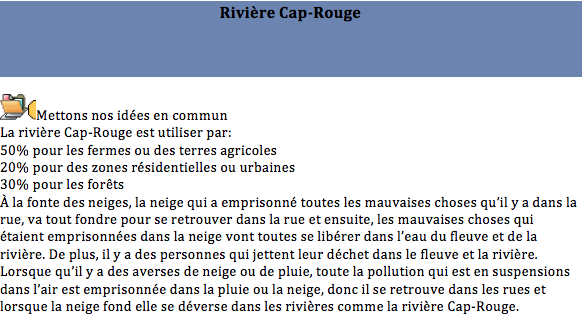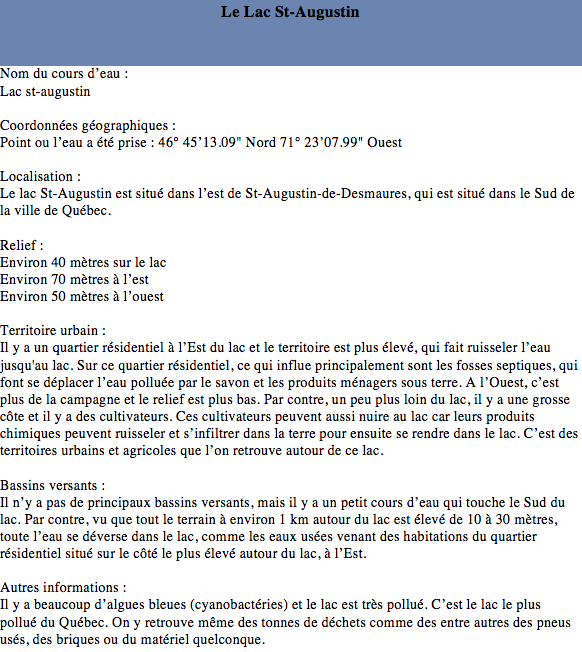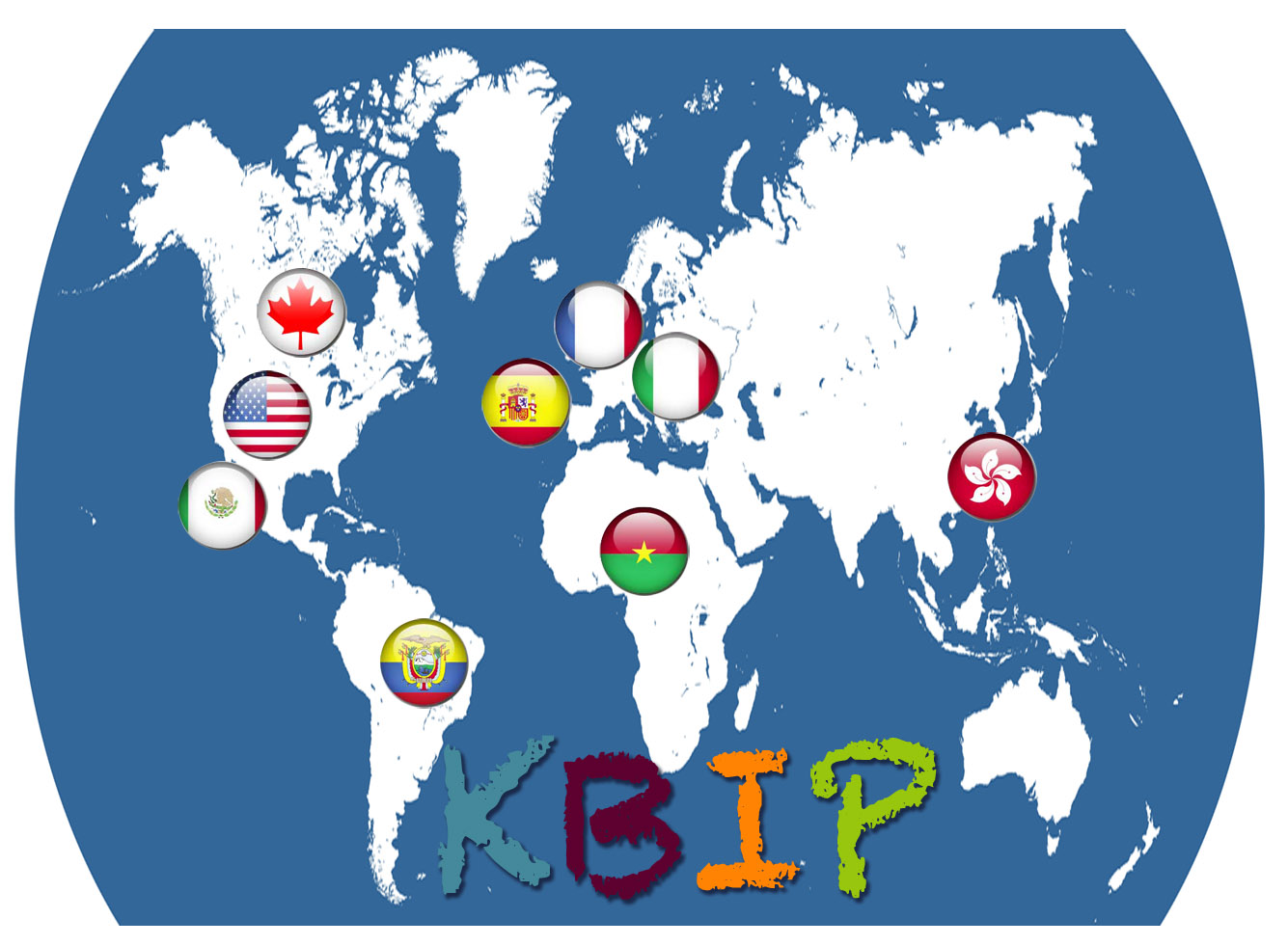
Inquiry-based learning at PROTIC
Context
Inspired Tomorrow's Innovators' activities that took place during the 2008 Summer Institute in Toronto, secondary students from the PROTIC program at Compagnons-de-Cartier School decided to investigate on water quality in their area. In addition to the use of the Knowledge Forum to support their knowledge building process, students have demonstrated creativity in their approach. Indeed, they first tried to define their research project to later collectively develop the problem. A step that remind us an authentic research process.
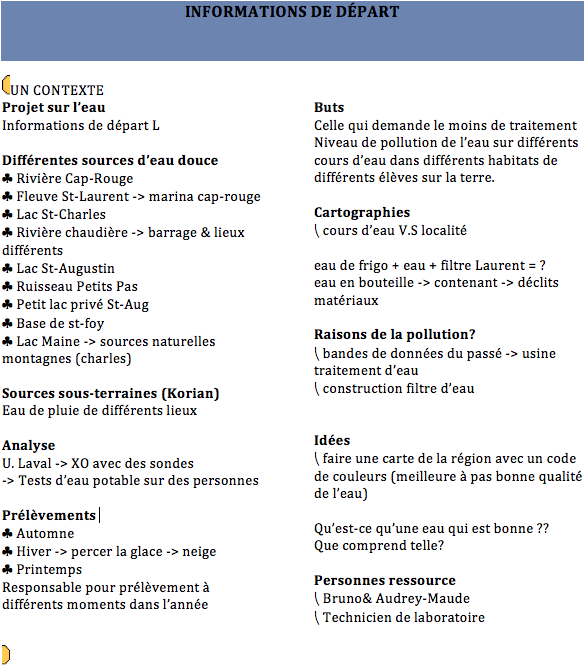
The problem
Through meetings and exchanges within the Knowledge Forum, students have come to a consensus on the wording of the problem and on the operations of data collection to be conducted.
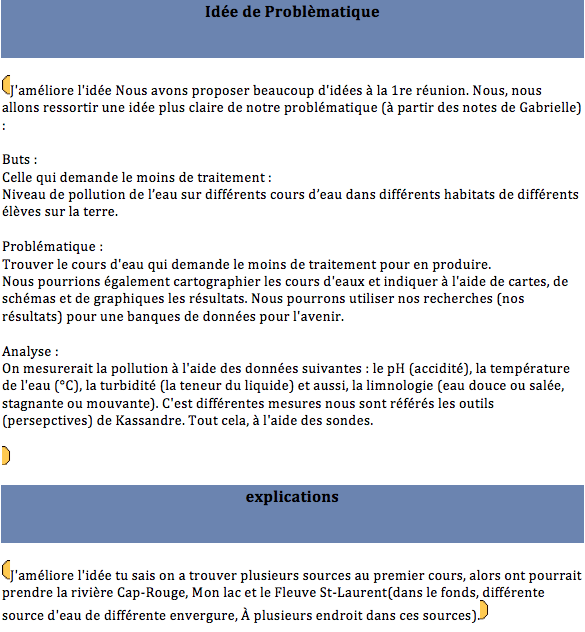
Here's the final formulation of the research problem from which the students worked.
They chose to investigate two research questions:
- How human activities have an impact on our natural environment and affect the water quality in the Quebec city area?
- What are the behaviors to be changed to reduce the negative impact of our activities on the environment?
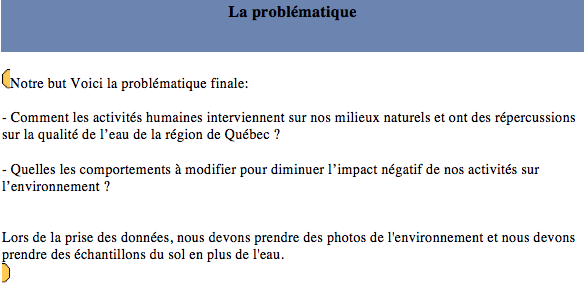
Our questions and assumptions
Before gathering data, PROTIC students researched information to make assumptions about the health of rivers in the area.
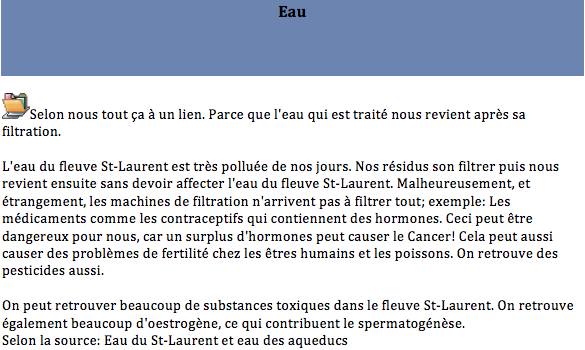
This being a multidisciplinary project (french, social studies and math, science and technology), students have approached the problem from several angles using three different "Views" in the Knowledge Forum:
- The geographers' perspective on water.
- The scientists' perspective on water.
- The laboratory technicians' perspective on water.
The geographers' perspective on water
It's in this "View" that were built geographic representations of each of the studied streams. It was also a space for students to cogitate on potential pollution sources located nearby the streams.
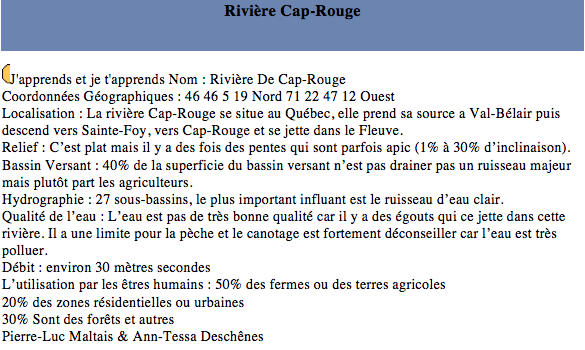
The scientists' perspective on water
Within this "View", students have deepened their understanding of concepts and theories they would use to collect their data on the field. Equipped with probes and XO laptops, students were able to collect data about temperature, turbidity, oxygen content, conductivity and potential hydrogen (pH) of the water. They first needed to understand the characteristics that would be later considered in their analysis.
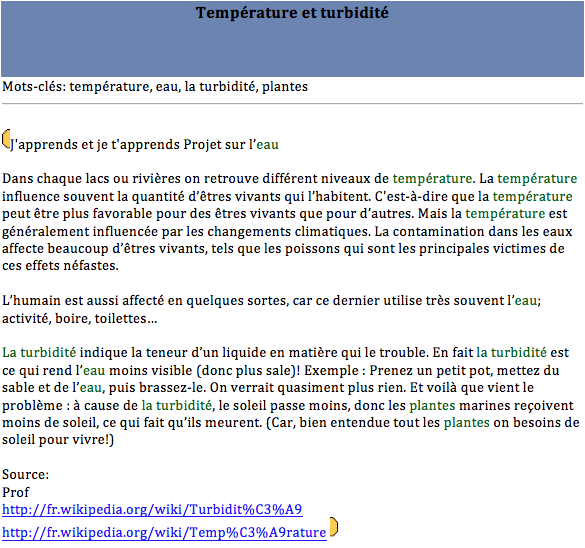
To enrich their analysis, they also defined what they consider good water.
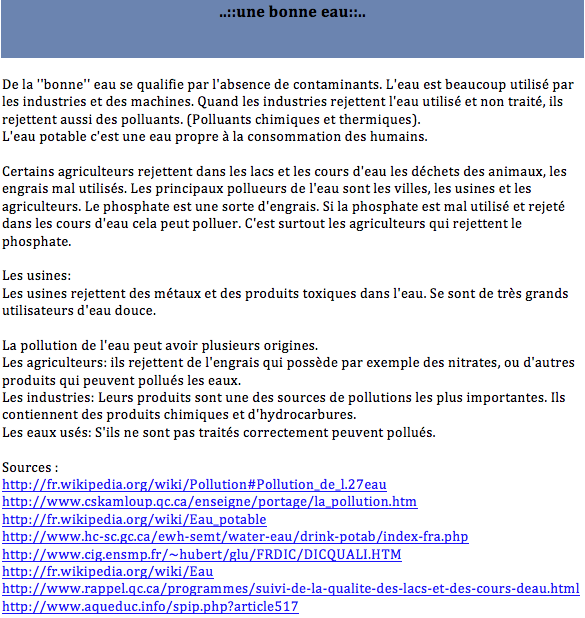
Data collection

Data analysis in school laboratory

The laboratory technicians' perspective on water
It's in the The laboratory technicians' perspective on water "view" that the students published their results from the laboratory work. It's where they also discussed about the first observations that will serve as basis of their analysis.
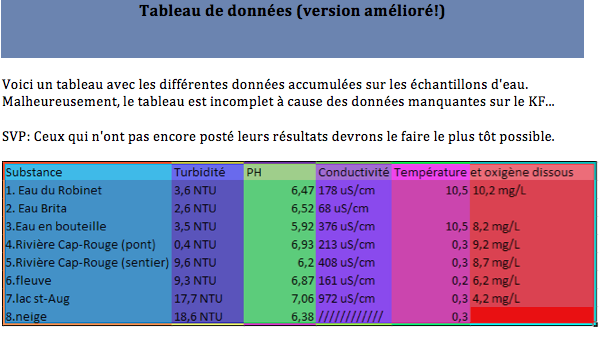
Data analysis
Thus, assembling data collected within different perspectives, students were able to develop a general picture of these streams and therefore were able to make assumptions on what could explain the results and the different pollution sources.
